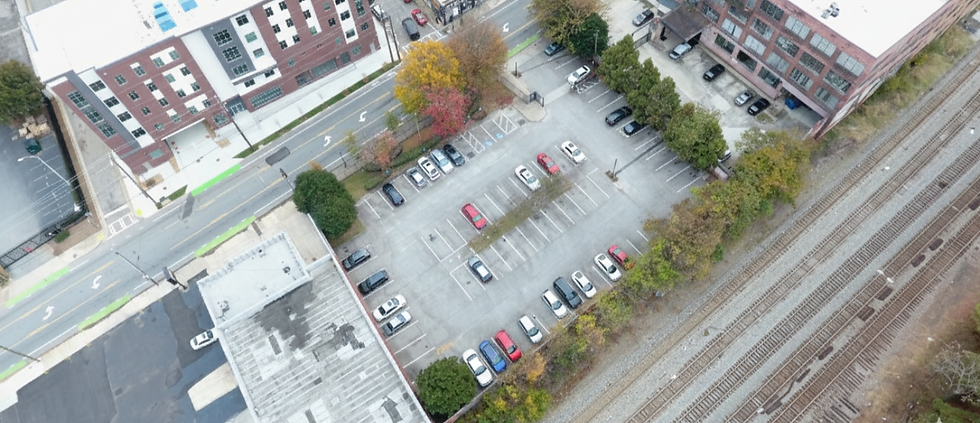Top 10 Frequently Asked Questions By New Commercial Tenants
- Michael Habif

- Mar 10, 2014
- 4 min read
Looking for retail, office or warehouse space for the first time? Our list of top ten questions asked by new commercial tenants may aid in your search.
1. What does a lease rate of $12 per foot mean? Commercial lease rates in Georgia are typically quoted based on the annual cost per square foot. For example, if the lease rate is $12 per foot, this rate is multiplied by the total square feet of the unit to determine the annual rental cost. Divide the annual cost by 12 months to determine the monthly cost of the lease. A 1500 square foot space leased at $12 per foot has an annual cost of $18,000 (1500 sf * $12) and a monthly cost of $1500 ($18,000/12 months).
2. What is the CAM charge? Most commercial properties include a separate monthly charge for the tenant’s share of common area maintenance expenses also known as CAM charges. These charges represent the tenant’s share of expenses at the property for common services and may include costs for landscaping, garbage, water, parking lot lighting, real estate taxes and other expenses associated with running the property. The exact formula for determining CAM charges is specified in the lease document. The CAM charge represents the total of these charges which are then apportioned among the tenants based on the pro rata share that each tenant’s space represents to the total space available at the property. Like rental rates, CAM charges are expressed as a yearly charge. This charge is multiplied by the square feet of space leased to determine the annual charge. A 1500 square foot space with a $2 per foot CAM charge has a yearly CAM charge of $3,000 (1500 * $2) and a monthly cost of $1500 ($3,000/12).
3. Is this space secure? All of our spaces are secure but unfortunately crime can happen anywhere. We recommend that tenants have a monitored alarm system regardless of where they are located.
4. Why do I need renter’s insurance? All of our properties are insured agains damage and catastrophic loss from fire, storms and other perils. Our insurance does not cover the personal property of our tenants. We require each of our tenants to carry renter’s insurance to protect the value of their contents and to insure them against the risk of liability claims by visitors to their property. The exact terms of this insurance are spelled out in your lease document.
5. What is the typical lease term? Our minimum lease term is one year. Many of our leases are two to five years in length. The longer the lease, the more value there is to the Landlord provided the tenant has sufficient credit to meet all of the obligations of the lease. Longer lease terms also offer more security to tenants against future increases in market rents. It is important that a tenant not overextend itself with a term that is too long because the tenant is responsible for all payments due for the term of the lease even if the tenant needs to close or move its business prior to the end of the term.
6. Will the landlord pay to modify the space to meet my specific needs? Every lease is unique with regard to changes to the space that may be provided by the landlord. Much depends on the price that is advertised for the rented space as compared to the market rents asked for comparable space in the area. If our rate is significantly below average market rates, the space may be offered on an “as is” basis with the tenant paying for any changes that are necessary to meet the specific needs of its business.
7. How much is due at the start of the lease term? A tenant is required to pay the first month’s rent and a security deposit equal to one month’s rent at the time the lease is signed. The security deposit is returned to the tenant at the end of the lease term provided the space is returned without damage and in a clean condition.
8. How do I do to qualify to rent from Habif Properties? All prospective tenants must complete a tenant application form which can be completed on our website. There is cost of $25 to process the application and check the tenant’s credit report.
9. Are utility charges included in the rent? Normally each tenant is responsible for it’s own utility charges unless the space is not separately metered for utilities. Charges for electricity, natural gas and water are typically billed directly to the tenant by the utility provider. If utilities are not separately metered, these charges are normally apportioned to the tenants as part of the common area maintenance charges.
10. How much should I budget for utility costs? Utility costs for commercial space vary widely and are dependent on hours of operation by the tenant and the percentage of the space that is air conditioned and heated. Prices for water, electricity and natural gas vary from $1.50 to $3.00 per foot on an annual basis. When budgeting for water charges, remember that water bills include a cost for sewage that is often three times the costs of actual water used. For example, using $25 of water results in a total water and sewage bill of $100.





